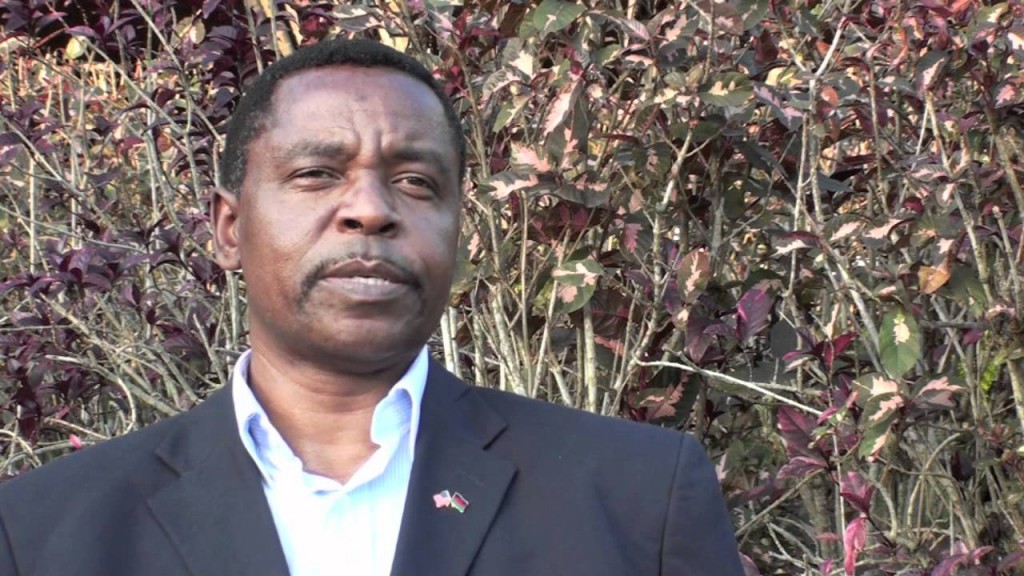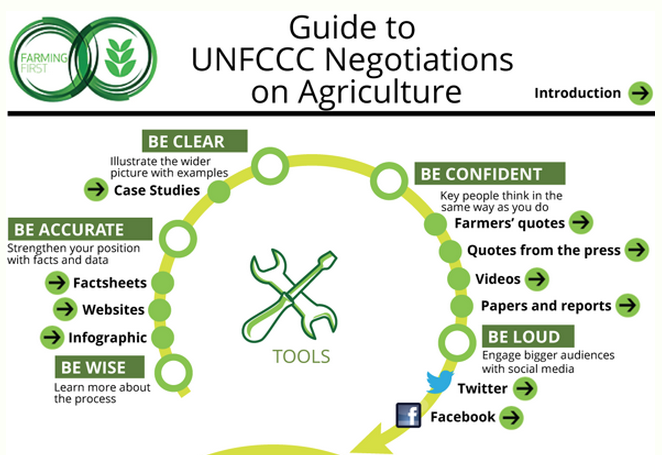At Farming First we are excited to announce the launch of the Guide to UNFCCC Discussions on Agriculture.
Launched today, exactly two months before COP19 takes place in November, the guide aims to provide key stakeholders with a one-stop source of information on the United Nations Framework Convention on Climate Change discussions. Offering a series of videos, infographics, quotes and key facts and figures on the relationship between agriculture and climate change, it is hoped the guide will enable people to participate in discussions.
Produced in partnership with the CGIAR program on Climate Change, Agriculture and Food Security (CCAFS) and the Technical Centre for Agriculture and Rural Cooperation (CTA), the guide underlines the need for a Work Program on Agriculture under the UNFCCC Subsidiary Body for Scientific and Technological Advice (SBSTA). This would ensure that agriculture is better incorporated into the various convention mechanisms at future COPs.
Agriculture will be crucial to finding solutions to the challenges of climate change, since adaptation is critical to agriculture and the industry also offers huge potential in mitigation. The Guide provides farmers, industry leaders and policy makers with direct access to helpful tools and explains how these resources can be used to support the role of agriculture at climate change discussions.

One of the videos included in the toolkit is a Farming First interview with Dyborn Chibonga, Chief Executive Officer of the National Smallholder Farmers’ Association of Malawi (NASFAM), who explains the impact of climate change for farmers around the world:
“Climate change effects our production as farmers and farmers of course are going to need to learn two things: firstly, to adapt to a changing climate with which we need the help of researchers and governments and secondly, we need to learn how to prevent the greenhouse gas emissions.
Farmer education is very important to try and help them understand the variability in the seasons and the need to adopt technologies that can mitigate against climate change.”
It is hoped that resources, such as the above quotes, will provide a valuable resource for everyone interested in following climate change discussions and will enable more people to follow agriculture at UNFCCC discussions in November.
For more information and to explore the toolkit click here



